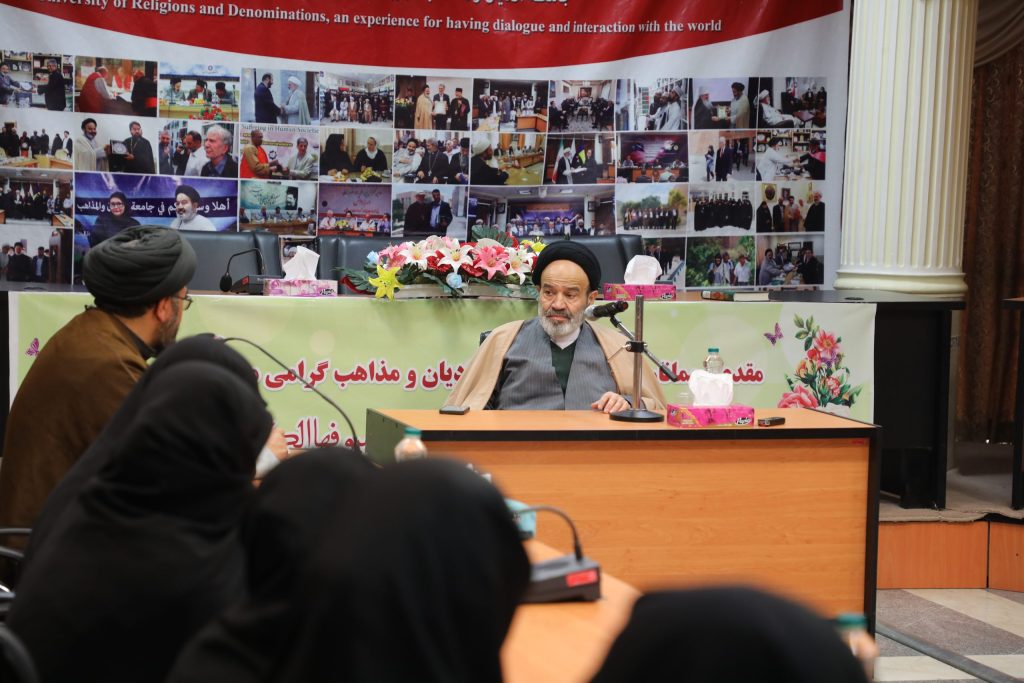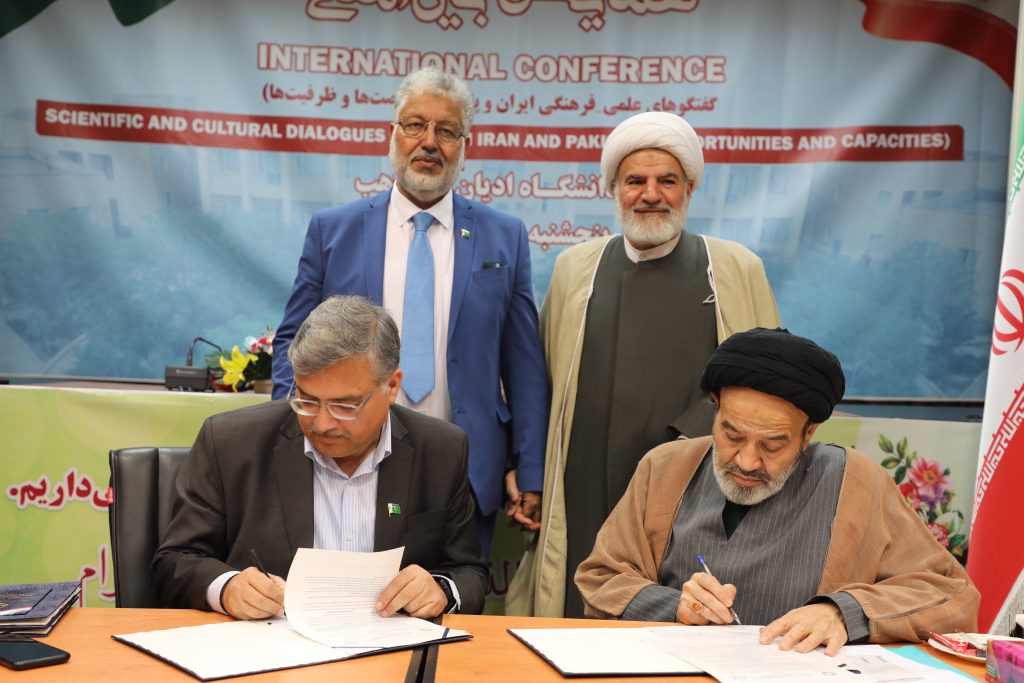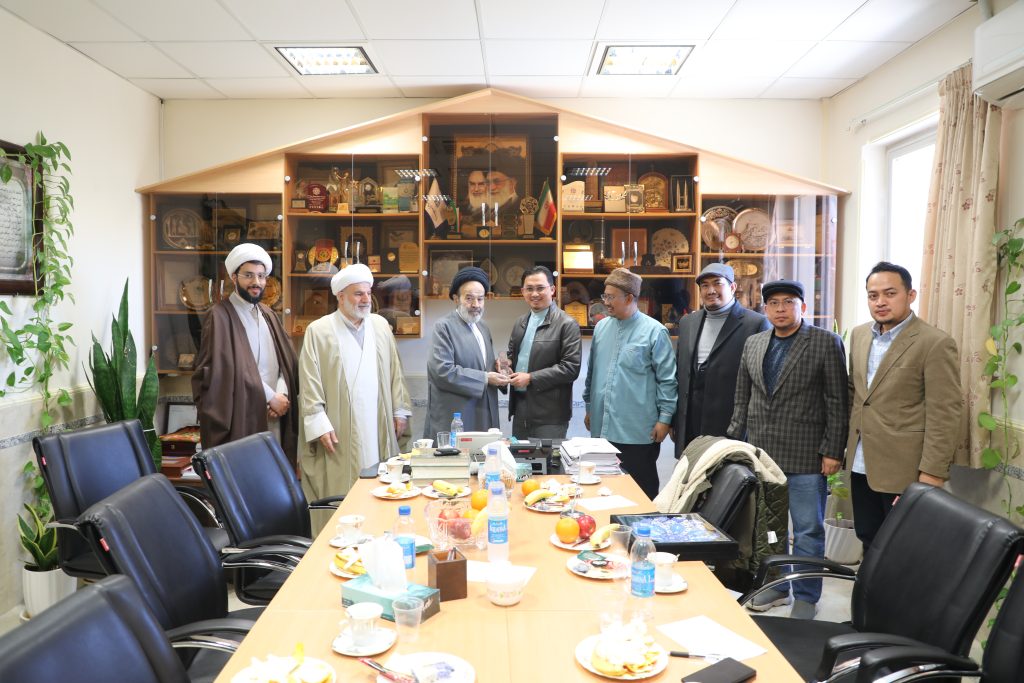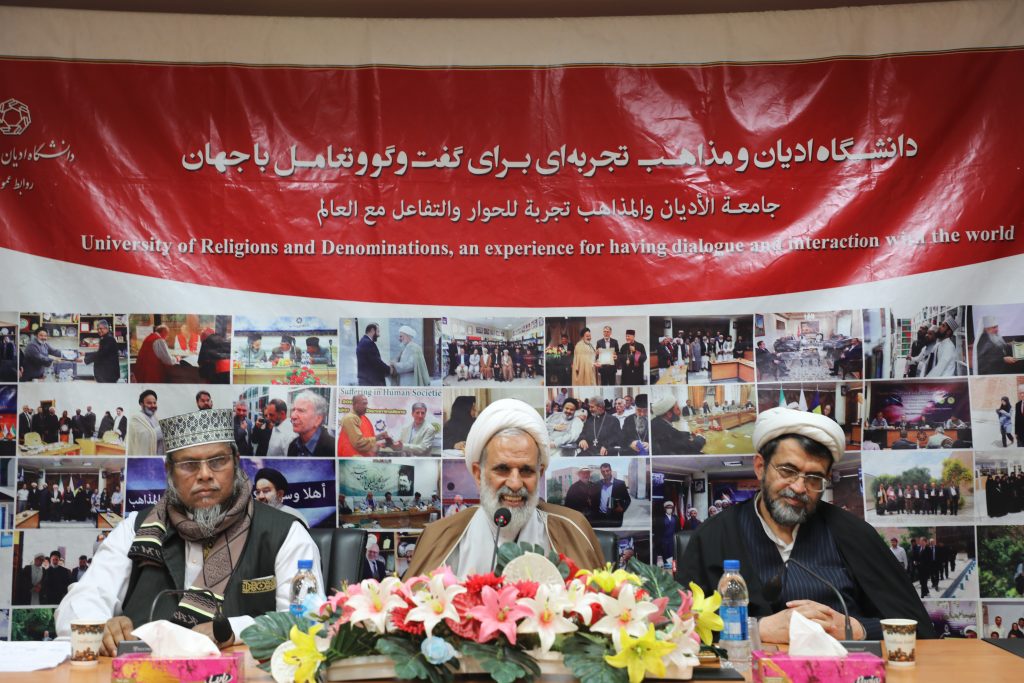Swiss Professor, s Workshop at URD on: Recent Developments in the Protestant Theology
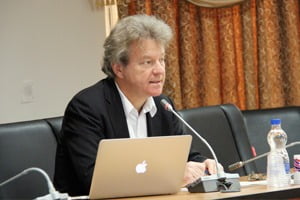
Reinhold Bernhardt, Swiss professor of systematic theology at the University of Basel, surveyed the recent developments in the protestant theology in a workshop at the University of Religions and Denominations on Feb, 22-27, 2015.
Who is the Lecturer: Reinhold Bernhardt is a professor of systematic theology at the University of Basel in Swizterland, where he previously served as dean of the Faculty of Theology. He is co-editor of the quarterly journal Theologische Zeitschrift, an interdisciplinary and multi-lingual publication promoting cross-disciplinary theological dialogue. Bernhardt earned his Ph.D. from the University of Heidelberg in 1990 with a dissertation titled “Der Absolutheitsanspruch Des Christentums: Von Der Aufklarung Bis Zur Pluralistischen Religionstheologie” (“The Absoluteness of Christianity: From the Enlightenment to the pluralistic theology of religions”).
In addition, Bernhardt has written four books: Was heißt “Handeln Gottes”? Eine Rekonstruktion der Lehre von der Vorsehung Gottes (“What are “Acts of God”? A reconstruction of the doctrine of God’s Providence”); Wahrheit in Offenheit. Der christliche Glaube und die Religionen (“Truth in Openness: The Christion Faith and Religions”); “Ende des Dialogs? Die Begegnung der Religionen und ihre theologische Reflexion” (“End of Dialogue? The encounter of religions and their theological reflections”), and Zwischen Größenwahn, Fanatismus und Bekennermut. Für ein Christentum ohne Absolutheitsanspruch (“Between Megalomania, Fanaticism, and Courage of Conviction: Toward a Christianity Without Absoluteness”). Bernhardt has also edited ten anthologies, written more than eighty articles for books or encyclopedias and more than fifty articles for scholarly journals.
Workshop Sketch
Sunday: Mainline Protestantism – Evangelicalism – Charismatic Movement(s).
The classical Christian denominations within Christianity in general and within Protestantism in particular seem to lose importance. The fastest growing “denomination” is the Charismatic movement, which goes across the borders of classical Protestantism, sometimes even beyond Christianity into what can be called esotericism. I the class I would like to point out some basic features of the heterogeneous Charismatic movement (also called “Pentecostalism”). What are the characteristics? How does it distinguish from mainline Protestantism and Evangelicalism?
Monday: The recent debate on “Divine action”.
Not the least inspired by the dialogue with the sciences, during the last decades a debate on the understanding of “divine action” came up. Does it make sense to assume that God performs single acts like a human being does? How would such acts relate to the scientific understanding of the world? If God performs specific acts why did/does he not act to prevent suffering of the creatures. Those are the questions which attracted attention in the recent debate on “divine action”. In the class I would to present the main positions and suggest my own answer to that question.
Tuesday: The recent debate on “Open theism”.
In 1994 the book »The Openness of God: A Biblical Challenge to the Traditional Understanding of God« was published. The authors were Clark Pinnock, Richard Rice, John Sanders, William Hasker and David Basinger. That book launched a big debate in the English-speaking evangelical theology: the so called “open-theism”-debate. According to the proponents of this view God should not be seen as the sovereign Lord who for his own glory works out all things according to the counsel of his will. Rather, we should view God as the self-limiting loving parent who relates to his creatures in such a way that he comes to know events as they take place since he does not know the future in exhaustive detail before it happens. The future is “open”, even for God. Involved in that debate are basic questions on the omnipotence and omniscience of God. How is God related to time and history.
Wednesday: Interfaith theology: The recent debate on “religious pluralism”.
Not only in the academic theology but also in the churches there is an intensive debate on the presence of non-Christian religions in Europe going on. The number of Muslims is growing, Mosques are built even in smaller cities. But also other the Eastern religions become more and more visible. Many protestant churches issued papers on the questions of religious plurality and interreligious relations but so far they didn’t speak with a common voice, like the roman-catholic church does. Two years ago the “Community of Protestant Churches in Europe” has installed a committee which works on a paper on that issue. I am the president of that committee and would like to present the draft of the paper to the students in the class and give some “insider-information”.
Thursday: New developments in “ecumenical theology” (intercultural theology, post colonialism, contextual theology).
The classical understanding of “ecumenical theology” referred to the relations between the Christian denominations, mainly roman-catholic, protestant, orthodox and Anglican. During the last two decades that focus shifted dramatically. “Ecumenical theology” turned into “intercultural theology” which addressed the relation of the “Northern” (European and North-American) theologies and churches to the Southern (Africa, Latin-America, South-East Asia and so on) theologies and churches. Christianity in those parts of the world grows rapidly and its voices will become stronger and stronger. How do the Western theologies respond to that challenge? In the class I would like to present some new movements in theology which are inspired by approaches from the cultural studies and social-philosophy, like “post colonialism”.


